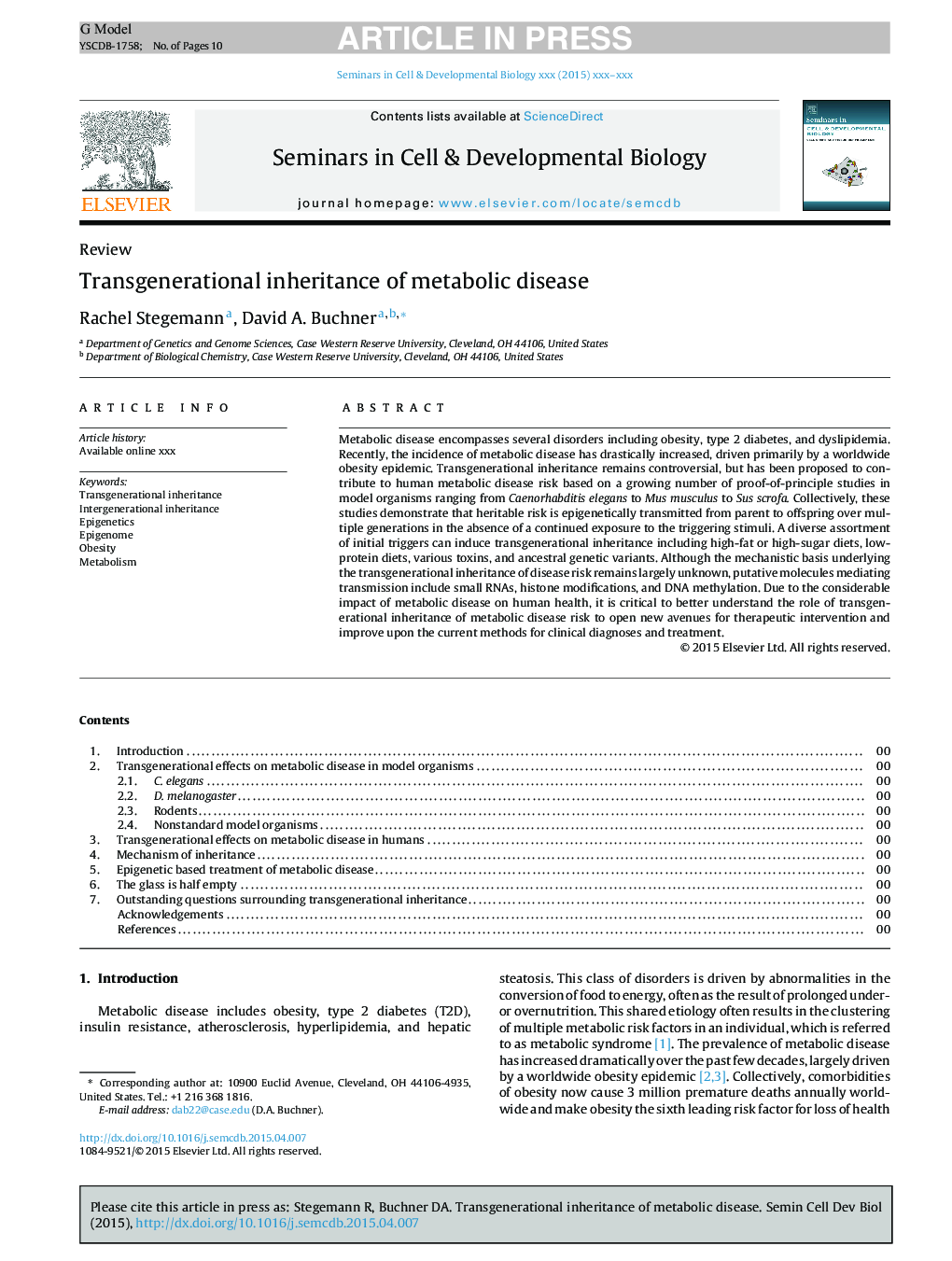| Article ID | Journal | Published Year | Pages | File Type |
|---|---|---|---|---|
| 8480379 | Seminars in Cell & Developmental Biology | 2015 | 10 Pages |
Abstract
Metabolic disease encompasses several disorders including obesity, type 2 diabetes, and dyslipidemia. Recently, the incidence of metabolic disease has drastically increased, driven primarily by a worldwide obesity epidemic. Transgenerational inheritance remains controversial, but has been proposed to contribute to human metabolic disease risk based on a growing number of proof-of-principle studies in model organisms ranging from Caenorhabditis elegans to Mus musculus to Sus scrofa. Collectively, these studies demonstrate that heritable risk is epigenetically transmitted from parent to offspring over multiple generations in the absence of a continued exposure to the triggering stimuli. A diverse assortment of initial triggers can induce transgenerational inheritance including high-fat or high-sugar diets, low-protein diets, various toxins, and ancestral genetic variants. Although the mechanistic basis underlying the transgenerational inheritance of disease risk remains largely unknown, putative molecules mediating transmission include small RNAs, histone modifications, and DNA methylation. Due to the considerable impact of metabolic disease on human health, it is critical to better understand the role of transgenerational inheritance of metabolic disease risk to open new avenues for therapeutic intervention and improve upon the current methods for clinical diagnoses and treatment.
Related Topics
Life Sciences
Biochemistry, Genetics and Molecular Biology
Cell Biology
Authors
Rachel Stegemann, David A. Buchner,
